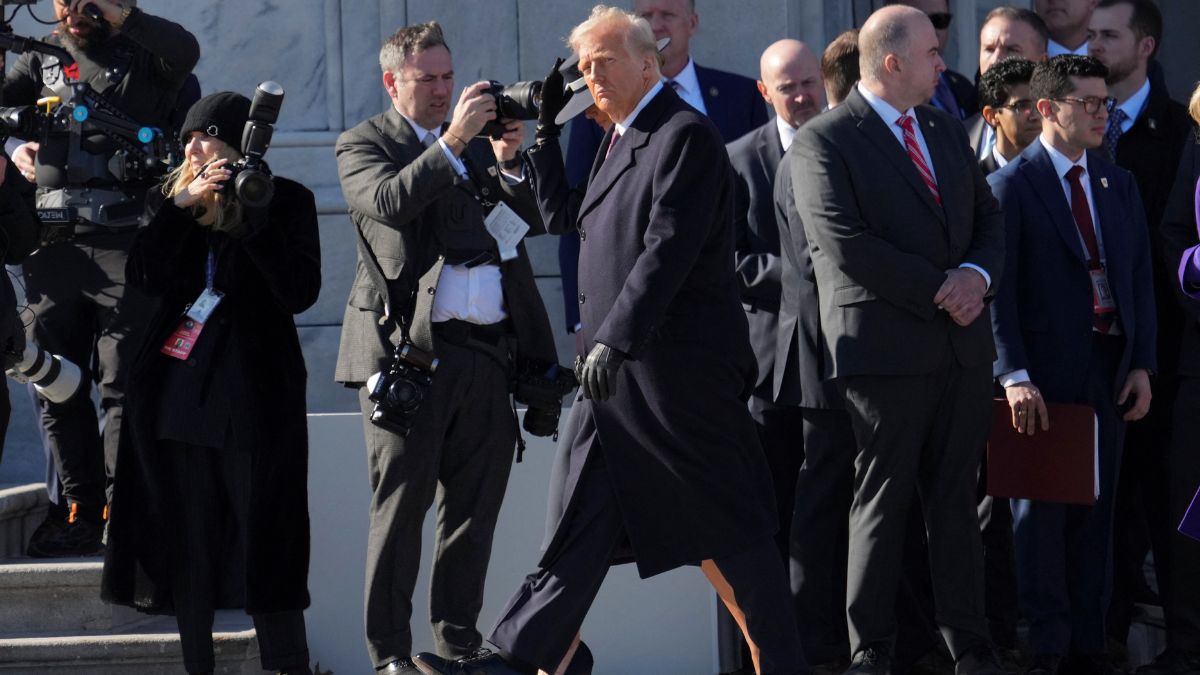President Trump's decision to withdraw the United States from the Paris Agreement is a HUGE blow to global climate change efforts. This controversial move, echoing his 2017 action, leaves the world questioning America's commitment to tackling this critical issue. But don't worry, this article will break down everything you need to know about this setback and its impact.
What is the Paris Agreement and Why Does it Matter?
The Paris Agreement, signed in 2015, is an international pact aiming to limit global warming to well below 2 degrees Celsius above pre-industrial levels. The goal? To prevent the catastrophic consequences of unchecked climate change, such as rising sea levels, extreme weather events, and biodiversity loss. This pact is a critical component of global cooperation for a greener future. Countries voluntarily set emission reduction targets, making this international accord highly significant in a collective attempt to curb climate change's devastating effects.
The Goals and Mechanisms
The agreement focuses on two key temperature limits: a preferred 1.5 degrees Celsius increase and an absolute maximum of 2 degrees Celsius. Every nation submitted its own plans for achieving these targets, which will get progressively more challenging over time; plans must be updated by February 2025. It also encourages investments in renewable energy and sustainable practices.
The Impact of the US Withdrawal
Trump's decision has far-reaching consequences. Many environmental experts view this action as an extreme measure. With the U.S. now out of the Paris accord, critics raise alarms over weakened global cooperation, jeopardizing a united global approach that is critical to mitigating the impacts of global warming. Many view this decision as sending a strong negative message that challenges many of the agreements already set in motion.
Economic and Political Ramifications
The US withdrawal could potentially stall international collaboration on climate issues, hindering collective progress. Despite this withdrawal, other nations seem committed to pushing climate change initiatives. Several climate analysts predict this international commitment is unlikely to falter as more governments embrace greener technologies.
Global Response and Continued Efforts
Despite the US withdrawal, many countries remain firmly committed to the goals of the Paris Agreement. Many experts expect continued climate efforts from other major world powers, despite Trump's controversial action.
International Cooperation and Clean Energy Investment
International efforts to tackle climate change persist despite this latest U.S. withdrawal. Laurence Tubiana, a key figure in the creation of the Paris Agreement, indicates continued economic momentum supporting a global shift toward cleaner energy, with the market for this sector predicted to more than triple by 2035.
Looking Ahead: What the Future Holds
While this US withdrawal marks a setback, the global transition to a cleaner future continues. Many hope future US presidents might reverse this course.
Opportunities and Challenges
Although the US is the second largest emitter of greenhouse gasses, the reality is that it is no longer the biggest emitter (China has now taken that lead.) Though it's hard to overestimate the damage the Trump administration has done to climate policy, other countries, including Europe and China remain committed to global efforts, giving reasons for cautious optimism. It remains to be seen whether future efforts will offset this loss of leadership, but climate action and global efforts are unlikely to simply disappear.
Take Away Points:
- Trump's decision to withdraw from the Paris Agreement weakens global climate cooperation.
- Despite the US withdrawal, other nations continue their commitments.
- Clean energy investments and innovations indicate long-term progress toward sustainable goals.
- The future of climate action and international cooperation will greatly depend on future presidents and leaders of the participating nations.









